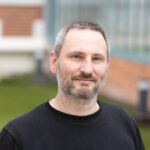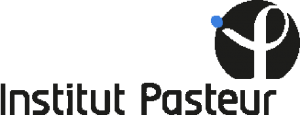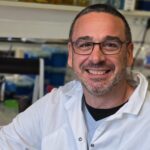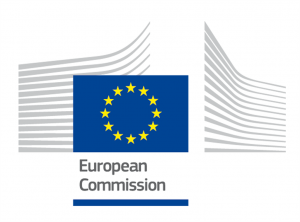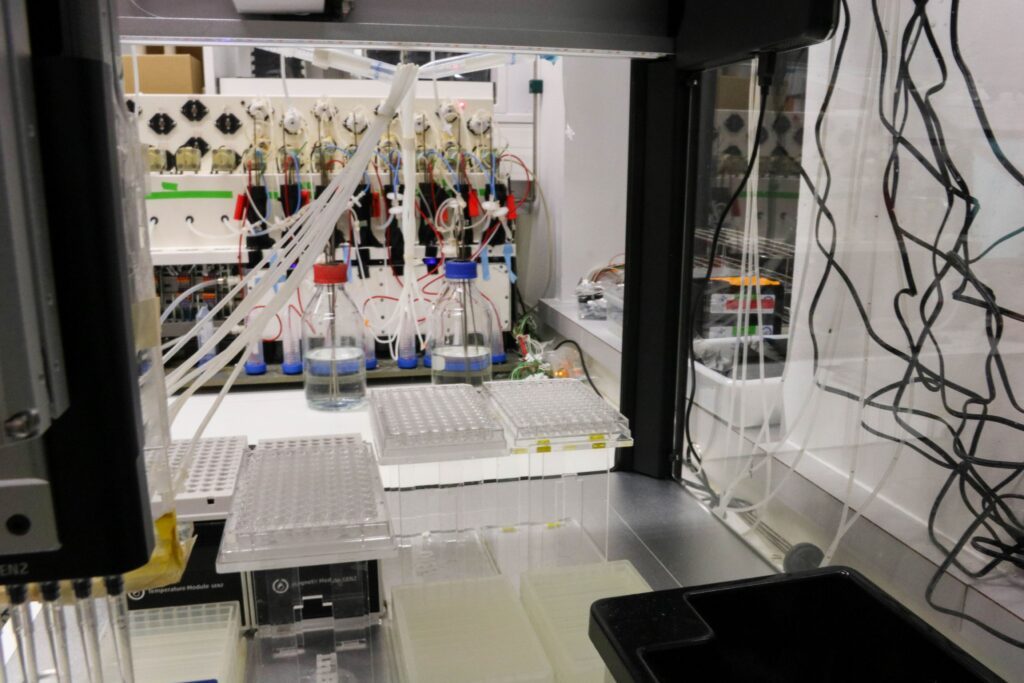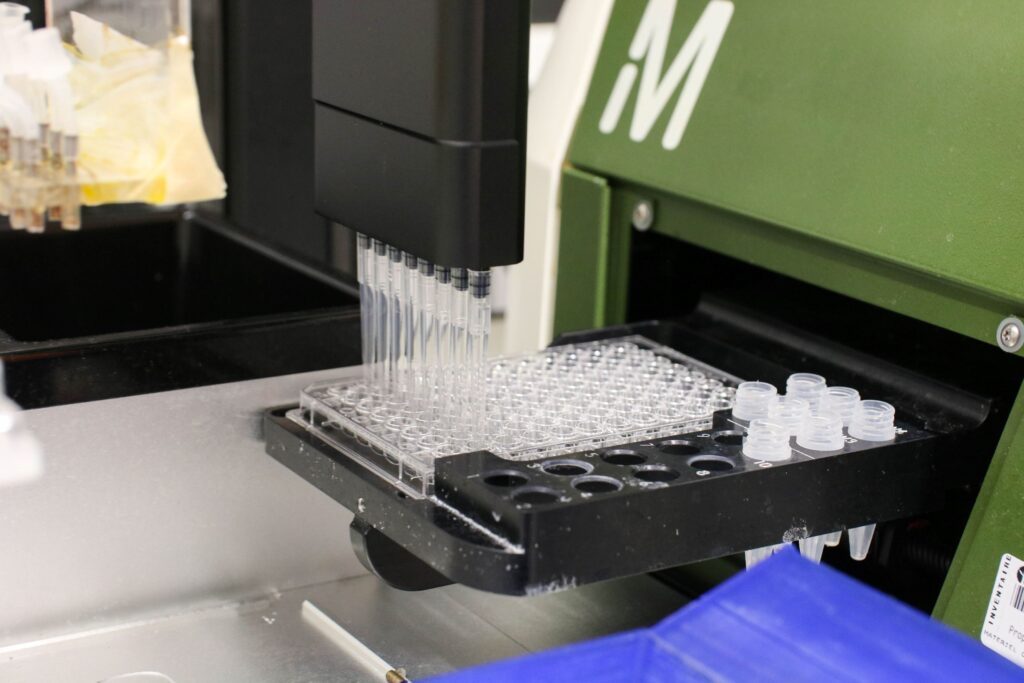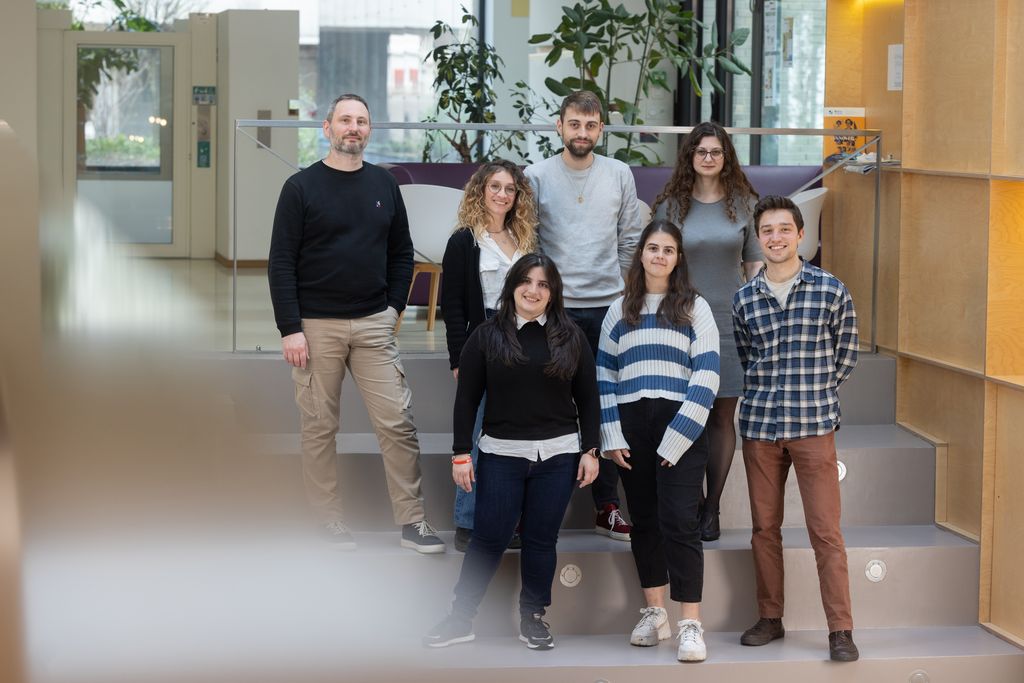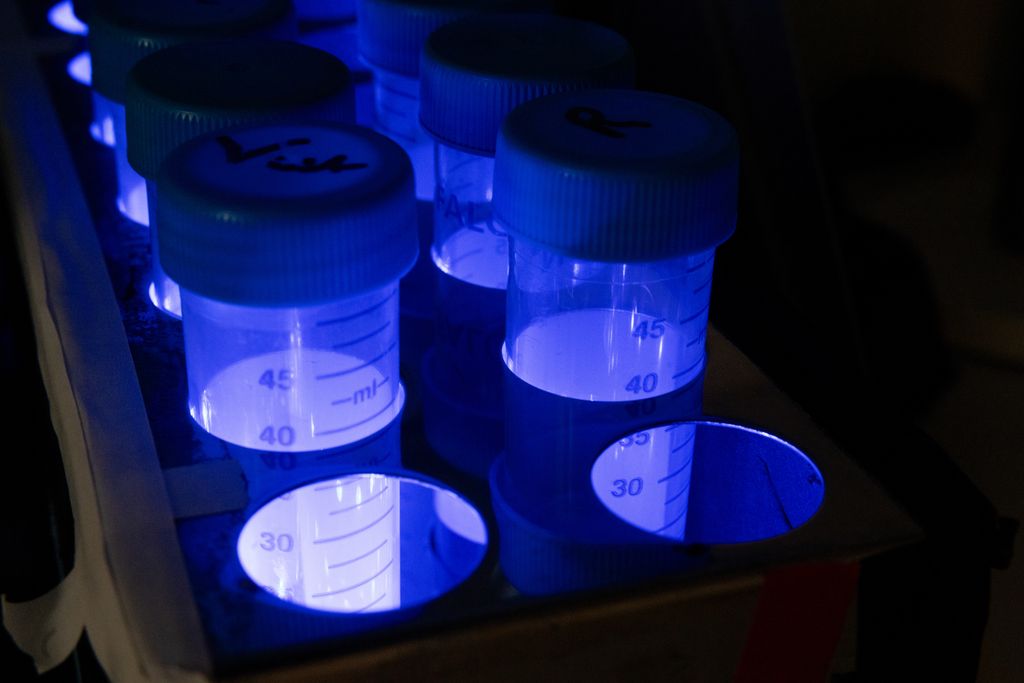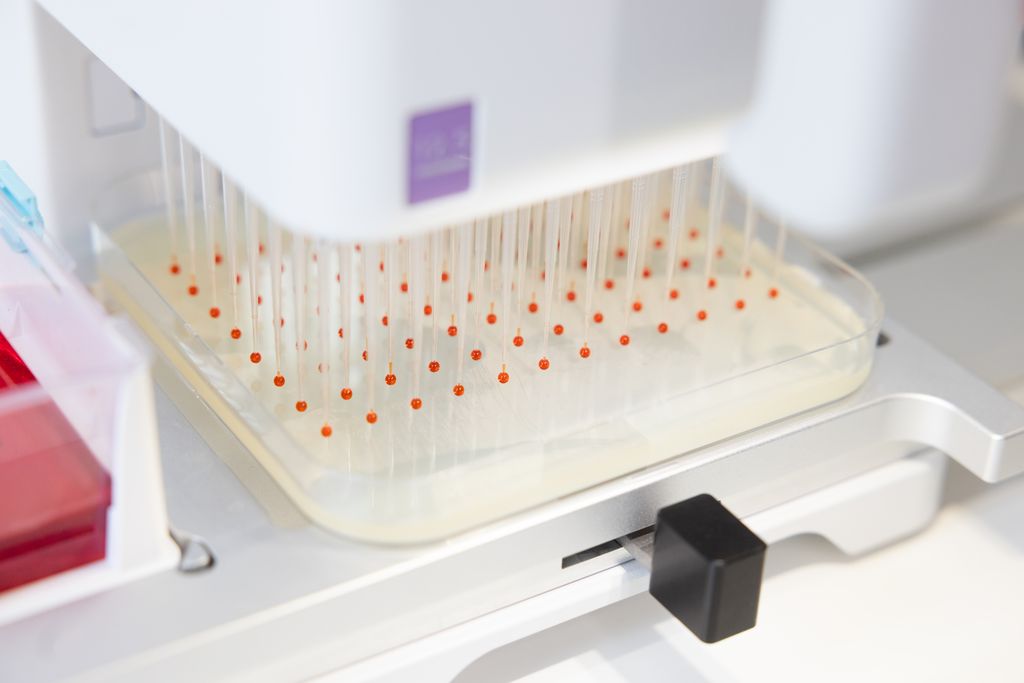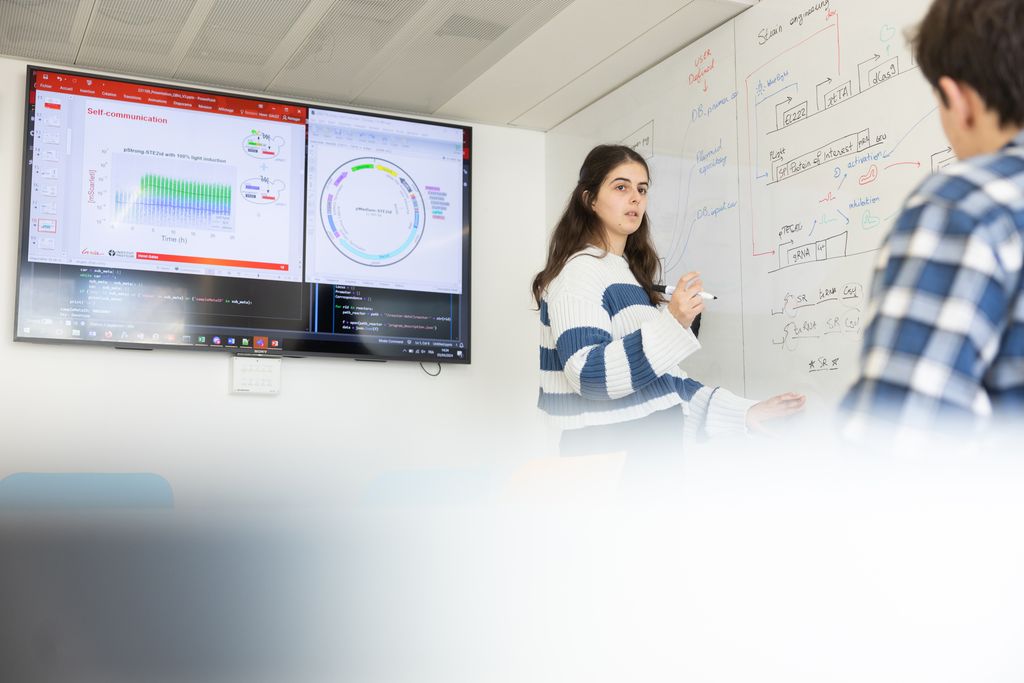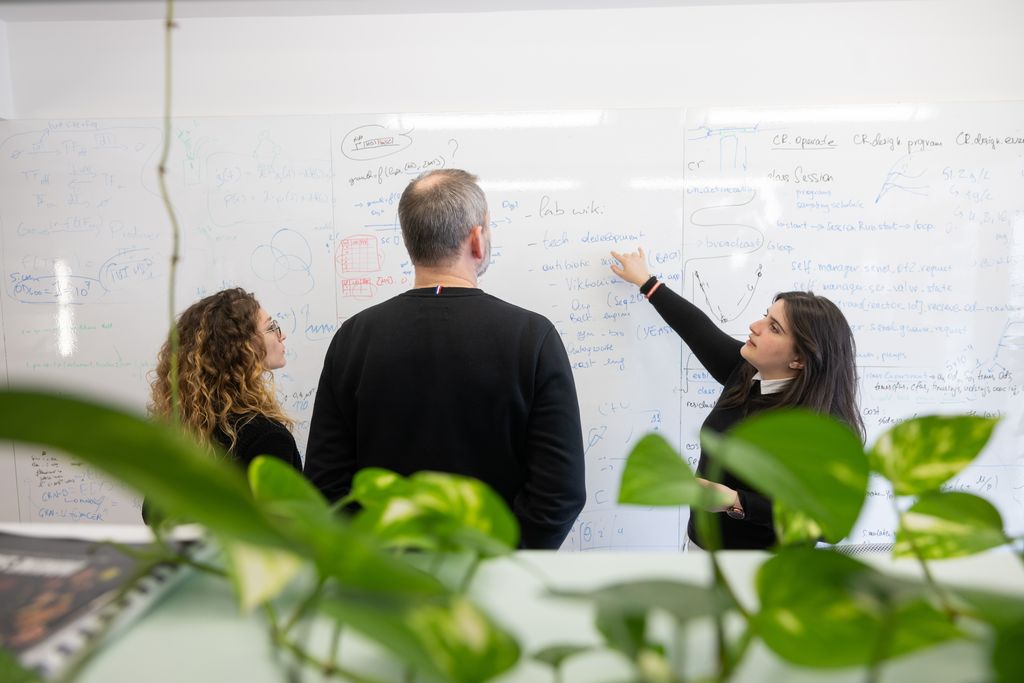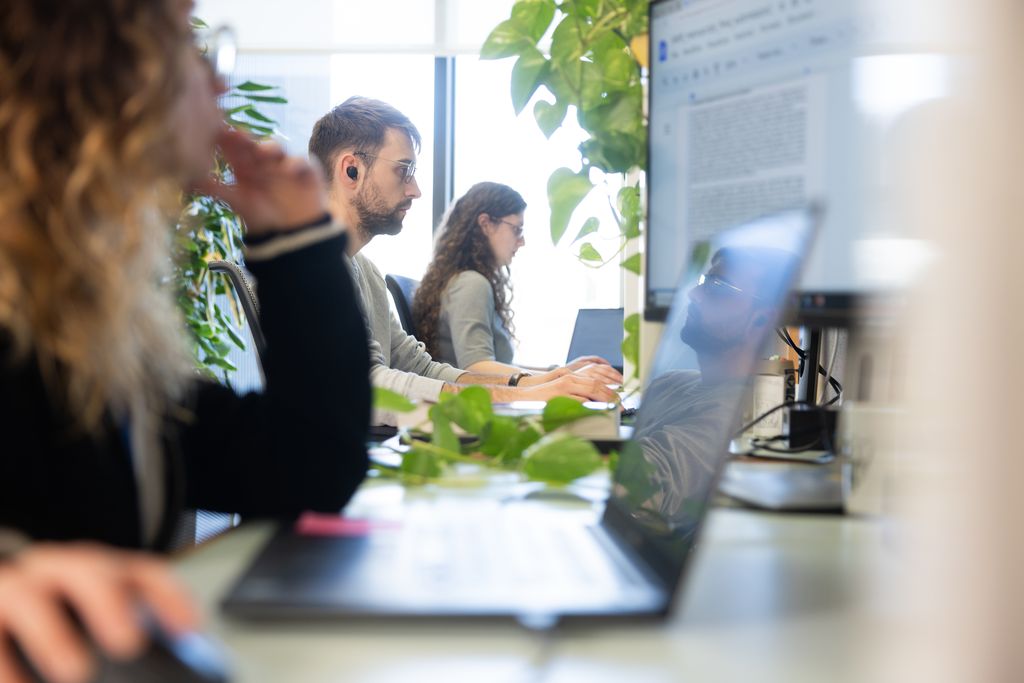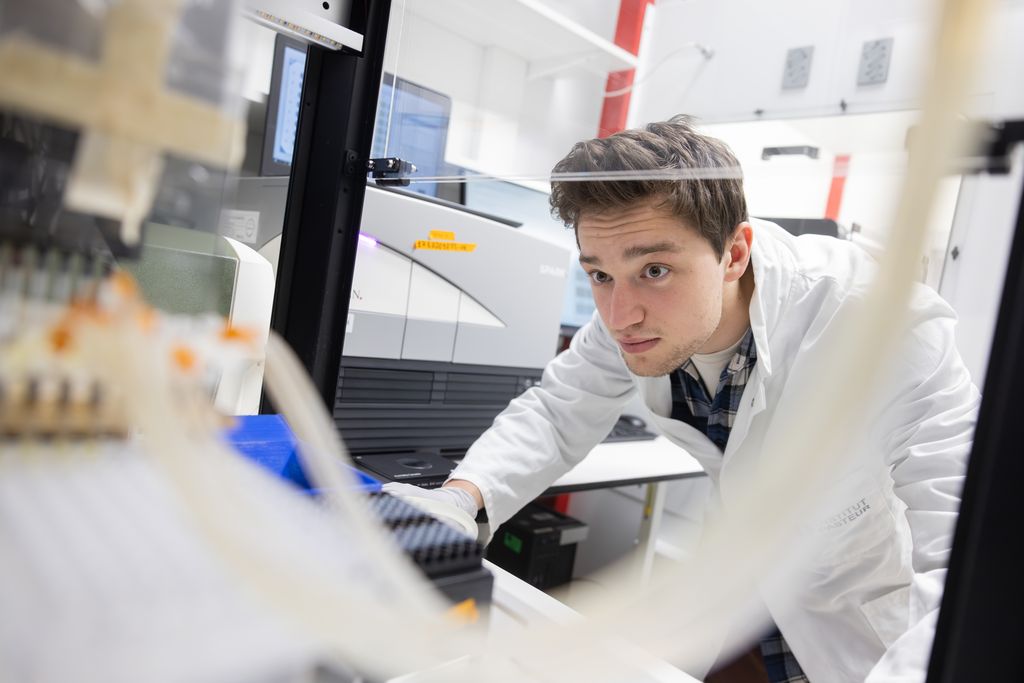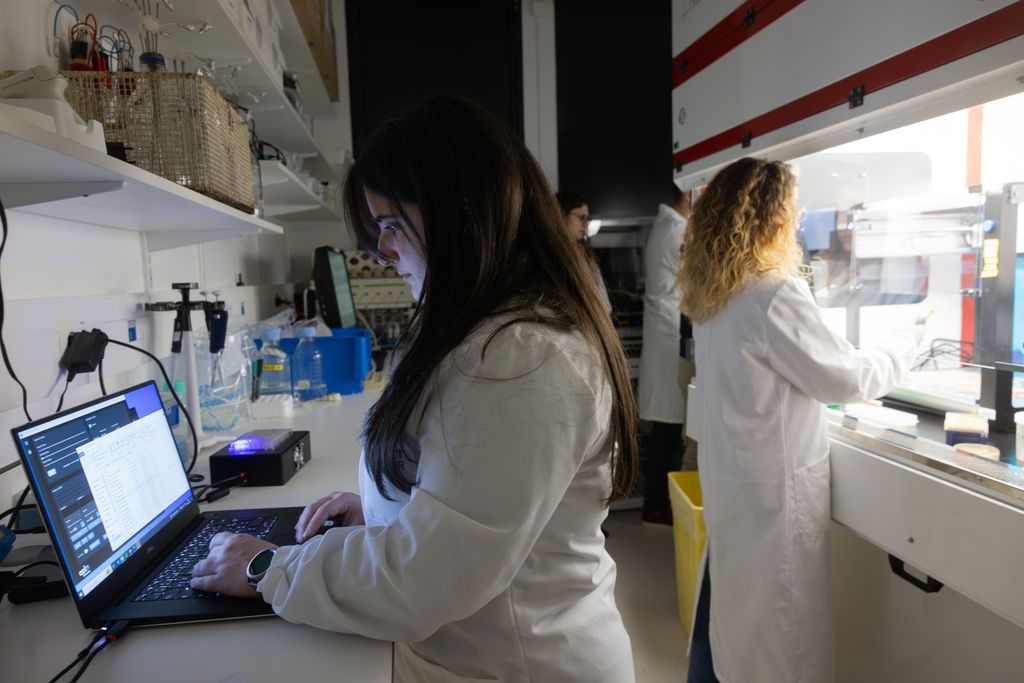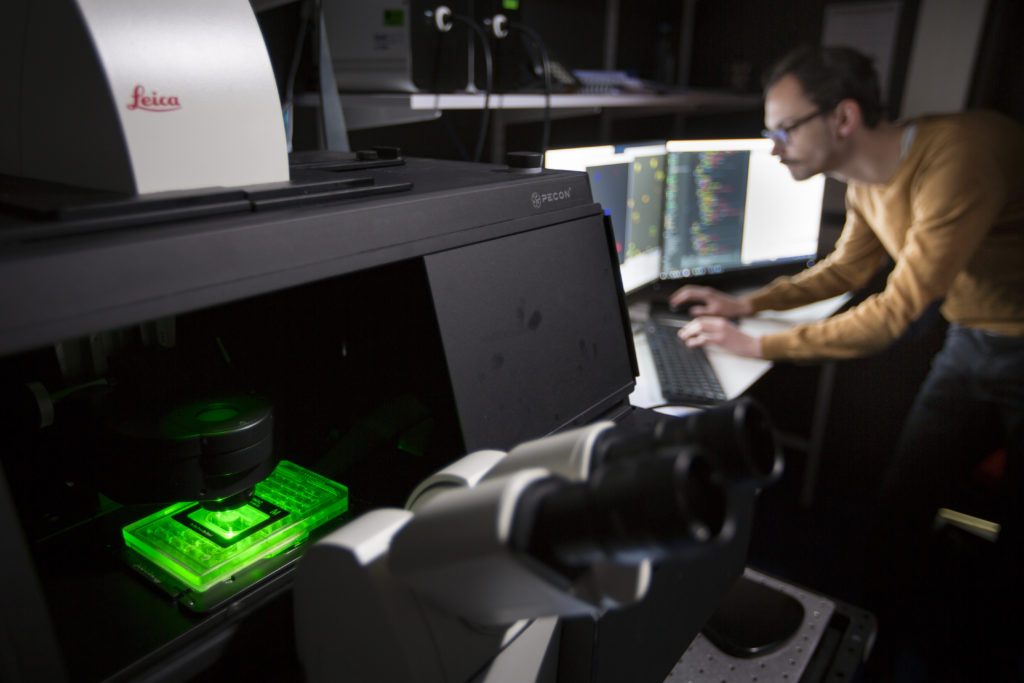Our main long-term goal is to develop a comprehensive methodological framework supporting the development of a quantitative understanding of cellular processes.
Our research rests on three pillars:
- Lab automation – engineer experimental platforms and develop computational pipeline for strain construction and data analysis,
- Bioengineering – use synthetic biology and standardized cloning approaches to probe the functioning of natural systems and construct novel systems,
- Quantitative modeling and real-time control – develop deterministic and stochastic models of cell processes to explain observations and guide designs.
Recent contributions include:
- Software supporting lab automation and real-time control of cellular processes: ReacSight (Bertaux et al, Nat Commun, 2022) and MicroMator (Fox et al, Nat Commun, 2022),
- Strategies to optimize bioproduction using regulation and control to preserve cell physiology: engineering microbial consortia (Aditya et al, Nat Commun, 2021, Aditya et al, PNAS, 2022) and applying cybergenetic principles (Sosa-Carrillo et al, Nature Commun, 2023),
- Quantifying resistance and tolerance of bacterial clinical isolates to antimicrobial treatments (Andreani et al, bioRxiv, 2021).
InBio is an Inria – Institut Pasteur joint research group combining wet and dry biology in the same lab. It is hosted at Institut Pasteur and affiliated to the Inria Paris research center.
